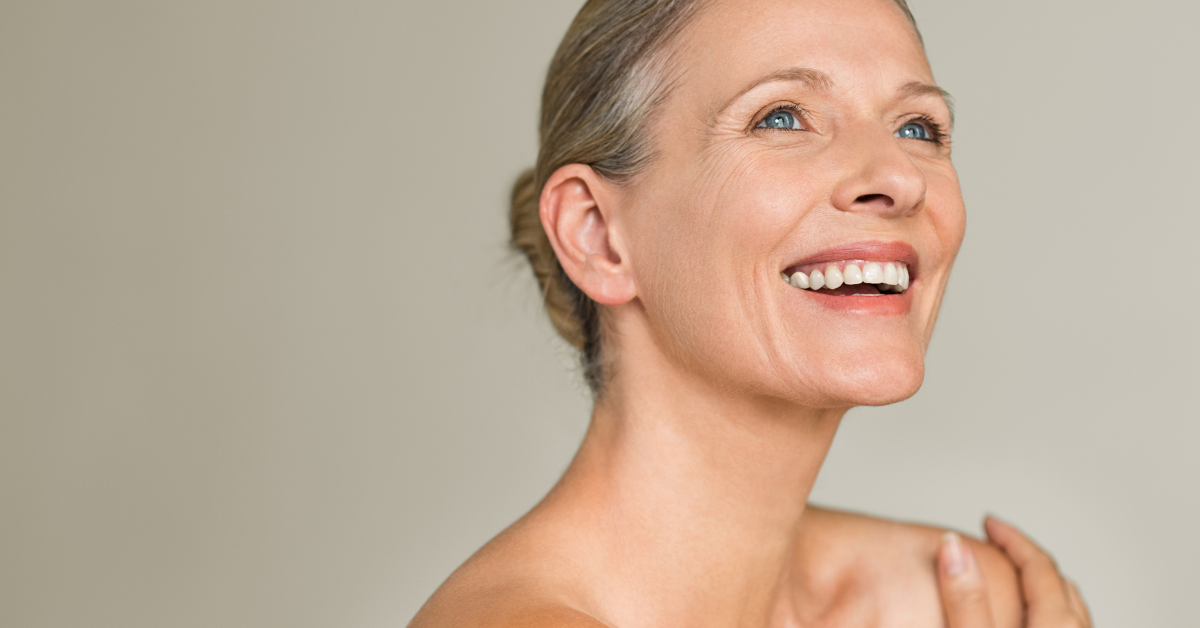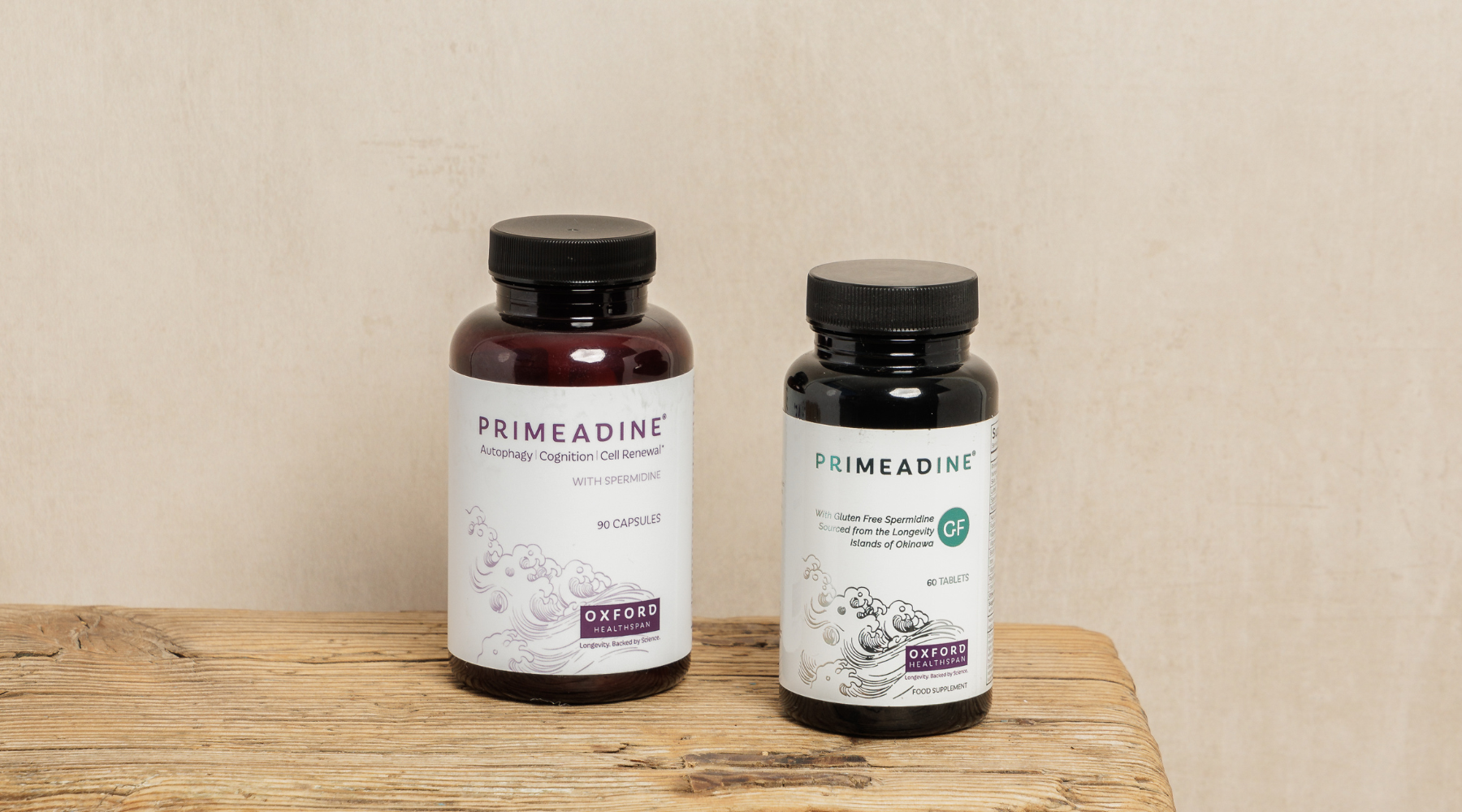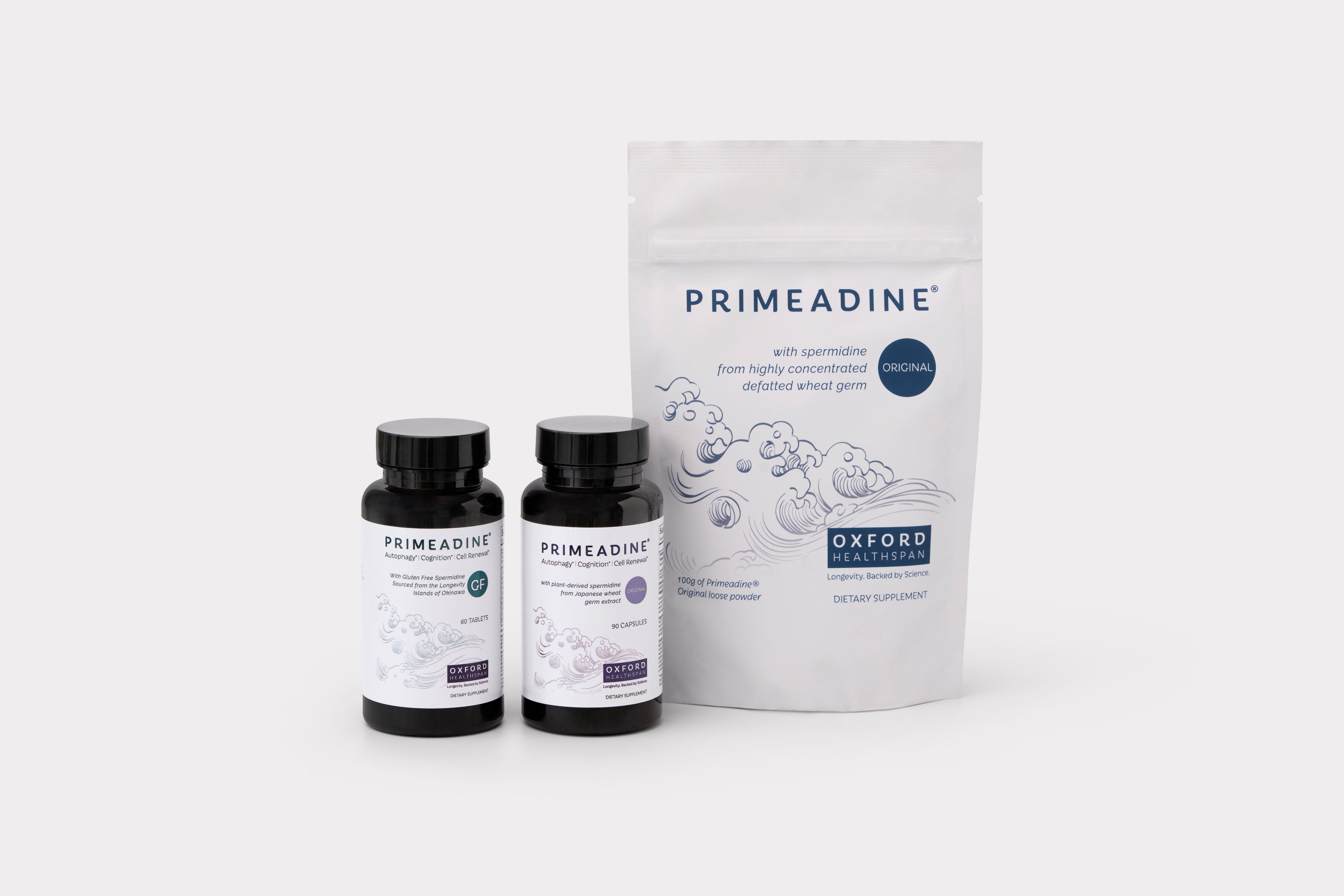The skin is a highly dynamic and multifunctional organ, not only acting as a physical barrier but also playing a pivotal role in informing us about our overall health. As the body’s largest organ, it serves as an indicator of systemic health conditions, particularly through the gut-skin and endocrine-skin axes. For instance, disturbances in gut health—often referred to as the gut-skin axis—can manifest as inflammatory skin conditions like acne, eczema, or rosacea. Gut dysbiosis, where the balance of gut bacteria is disrupted, may trigger systemic inflammation, which compromises the skin’s barrier function and increases sensitivity and reactivity.
Skin and Hormone Health
Hormonal imbalances also directly influence skin health. Conditions such as polycystic ovarian syndrome (PCOS), menopause, and thyroid dysfunction can result in significant changes in sebum production, elasticity, and pigmentation. For example, elevated androgen levels may lead to increased oil production and inflammatory conditions like acne, while declining estrogen during menopause can cause a reduction in collagen, leading to skin thinning and sagging.
Skin and Temperature Regulation
Additionally, the skin is critical for thermoregulation, helping to maintain the body’s internal temperature. Through the processes of sweating and vasodilation, the skin dissipates excess heat, while vasoconstriction helps to conserve heat in colder environments. This regulation is essential for maintaining homeostasis and preventing overheating or hypothermia.
Skin and Vitamin D Synthesis
Another vital function of the skin is its role in the synthesis of Vitamin D, an essential hormone that regulates calcium and phosphate levels in the body, supporting bone health and immune function. Sunlight triggers the conversion of cholesterol in the skin to Vitamin D3, underscoring the importance of healthy, functional skin for this critical metabolic pathway.
Skin and Immune Health
The skin also contains specialized immune cells, such as Langerhans cells, which are integral to the body’s immune surveillance system. These cells help detect and respond to pathogens, allergens, and other harmful agents, linking skin health to the body’s broader immune response. Disruptions in this defense system can lead to both localized and systemic issues.
Skin and Oxidative Stress
Finally, the skin plays a vital role in combating oxidative stress, which is closely linked to aging. The skin’s natural antioxidant defenses protect against free radicals generated by UV radiation and environmental pollutants, but when these defenses are overwhelmed, oxidative stress accelerates the breakdown of collagen and elastin, leading to premature aging.
In essence, the skin is not only a protective barrier but also a mirror reflecting our internal health, from hormonal balance and gut function to immune and metabolic status.
Why have you decided to introduce skin supplements to your patients?
I introduced skin supplements like Primeadine to provide a more integrative and holistic approach to skin health. Skin aging and disorders are driven by both external factors (UV radiation, pollution) and internal processes (oxidative stress, inflammation, hormonal fluctuations). These factors influence cellular health, and solely relying on topicals or procedures doesn’t fully address the root causes. Cellular dysfunction—especially the decline in autophagy, mitochondrial efficiency, and lipid homeostasis—leads to visible signs of aging, impaired wound healing, and compromised skin barrier function.
What is Spermidine?
Spermidine, a polyamine found in all living organisms, plays a crucial role in cellular growth, differentiation, and longevity. Research shows spermidine’s ability to promote autophagy—a process that recycles damaged components within cells, renewing them and maintaining cellular homeostasis. As we age, autophagy declines, leading to mitochondrial dysfunction, cellular debris buildup, and oxidative stress—all contributing to wrinkles, loss of skin elasticity, and impaired barrier function.
By introducing Primeadine, a plant-derived, spermidine-rich supplement, I can optimize cellular repair and turnover, leading to more profound and long-lasting skin improvements. Beyond skin, spermidine also impacts cardiovascular and immune health, creating systemic benefits closely tied to skin vitality. It helps address the internal drivers of aging, thereby complementing external treatments, improving the patient’s overall regenerative potential.
How did you decide what supplements to offer?
I chose Primeadine from Oxford Healthspan because of its scientific backing, clinical efficacy, and its specific mechanism of action tailored for aging skin. The decision is rooted in Primeadine’s ability to promote autophagy—an essential cellular process for removing damaged proteins and organelles, ensuring healthier cellular function and skin rejuvenation.
Primeadine offers a potent, bioavailable source of spermidine - Primeadine Original is derived from high-quality wheat germ extract and the gluten-free version, Primeadine GF, from Okinawan chlorella. Spermidine is critical for maintaining cellular health by influencing key pathways involved in aging, such as mitochondrial function, DNA stability, stem cell maintenance, and inflammation reduction. As aging impairs these functions, Primeadine helps to slow this decline by stimulating autophagy, allowing cells to renew themselves more effectively, leading to improved skin resilience and structure.
Additionally, spermidine plays a role in improving lipid profiles and wound healing, both of which are crucial for post-procedural recovery. By stabilizing cell membranes and optimizing lipid metabolism, Primeadine helps strengthen the skin barrier, improve hydration, and reduce TEWL. This also has a knock-on benefit for PRP (Platelet-Rich Plasma) therapy by improving plasma quality, enhancing its growth factor content, and promoting more effective tissue regeneration during PRP treatments.
What Skin Health Concerns can be Targeted With Spermidine?
Spermidine, as found in Primeadine, offers a wide range of benefits for both skin health and overall wellness:
- Wound Healing: Spermidine accelerates wound healing by enhancing autophagy and cellular proliferation, particularly in fibroblasts and keratinocytes—cells responsible for skin repair. It promotes faster migration and closure of wounds and enhances tissue remodeling, critical for recovery post-microneedling, laser, or other invasive aesthetic procedures.
- Improvement in Lipid Profiles: Spermidine positively influences lipid metabolism, stabilizing cellular membranes and enhancing skin barrier function. It supports the structural lipids that make up the skin’s barrier, improving moisture retention, reducing TEWL, and enhancing skin hydration. These effects are crucial in treating dry, flaky, or compromised skin barriers often seen in aging or damaged skin.
- Plasma Quality for PRP: Spermidine improves the overall health of plasma by optimizing lipid metabolism and cellular function. This results in higher-quality plasma for PRP treatments, improving growth factor content and tissue regeneration potential, leading to better clinical outcomes in skin rejuvenation procedures.
- Skin Elasticity and Firmness: By inducing autophagy, spermidine facilitates the removal of dysfunctional cells and promotes the production of collagen and elastin, which are vital for maintaining skin structure and elasticity.
- Reduction of Fine Lines and Wrinkles: Enhanced cellular turnover due to autophagy leads to more youthful, resilient skin, reducing visible signs of aging such as fine lines and wrinkles.
- Improved Barrier Function: Spermidine stabilizes cell membranes, strengthens the skin’s lipid barrier, and reduces trans-epidermal water loss, leading to better skin hydration and resilience.
- Inflammatory Skin Conditions: Spermidine’s anti-inflammatory properties help manage chronic inflammation that contributes to rosacea, acne, and eczema, making it a valuable tool in treating inflammatory skin conditions.
What Does the Research Say About Spermidine?
A robust body of research supports spermidine supplementation in promoting longevity, skin health, and systemic well-being. Clinical studies have demonstrated that spermidine enhances autophagy, which is linked to improved cellular health, tissue regeneration, and longevity. Research has shown that:
- Spermidine intake upregulates autophagy-related genes in aged organisms, improving skin elasticity and reducing signs of aging [1].
- Spermidine inhibits multiple hallmarks of aging, including telomere shortening, mitochondrial dysfunction, and inflammation, all of which are closely linked to aging and skin deterioration [2].
- Spermidine supplementation is associated with improved cardiovascular health, a crucial factor in maintaining overall skin health by ensuring optimal blood flow and nutrient delivery [3].
Studies also highlight spermidine’s impact on wound healing, showing faster recovery and better tissue regeneration in clinical models [4]. Additionally, research on spermidine’s ability to regulate lipid profiles has demonstrated improved membrane stability and cellular protection against oxidative stress [5].
What is Your Recommended Primeadine Protocol?
For optimal results, I recommend patients take Primeadine daily. The typical dose contains enough spermidine to support autophagy, mitochondrial function, and cellular renewal. Depending on the patient’s needs—such as skin aging, inflammation, or recovery from procedures—the dosage may be adjusted. Patients generally begin to see improvements in skin hydration and texture within 4-6 weeks, with more pronounced benefits in elasticity and wrinkle reduction after 3-6 months. Read the 'What to Expect from Primeadine' blog post for more info.
Combining Primeadine with topical treatments, a balanced diet, and sun protection optimizes overall outcomes, providing both immediate and long-term improvements in skin health and regeneration.
Are There Any Side Effects/Complications?
Spermidine is a naturally occurring compound in the human body, and clinical studies have shown that it is well-tolerated, even at higher doses. Side effects are rare but may include mild digestive discomfort during the initial stages of supplementation, which typically resolves as the body adjusts.
As with any supplement, I advise consulting a healthcare provider, especially for patients with underlying conditions or those on medications. In general, spermidine is considered safe and effective for both aesthetic and wellness purposes.
What Advice Would You Give Practitioners Considering Offering Supplements?
For practitioners, the key is to select evidence-based supplements with strong clinical backing and a clear mechanism of action, such as Primeadine. Understanding the cellular pathways that these supplements target—such as autophagy, mitochondrial function, and lipid metabolism—will allow practitioners to offer more personalized treatments. Supplements like spermidine complement topical treatments and aesthetic procedures, enhancing both short-term and long-term patient outcomes.
Educating patients about how internal factors such as cellular renewal, inflammation, and oxidative stress influence skin aging will also help them appreciate the importance of supplements in their overall skincare regimen.
Conclusion
Spermidine is at the forefront of anti-aging research, offering significant promise for aesthetic and systemic health applications. By addressing aging at the cellular level, Primeadine supports the body’s natural regeneration processes, empowering patients to maintain youthful, resilient skin well into later life.
References
1. Ni YQ, Liu YS. New Insights into the Roles and Mechanisms of Spermidine in Aging and Age-Related Diseases. Aging Dis. 2021;12(8):1948-1963. Published 2021 Dec 1. doi:10.14336/AD.2021.0603
2. López-Otín, C., Blasco, M. A., Partridge, L., Serrano, M., & Kroemer, G. (2023). Hallmarks of aging: An expanding universe. Cell, 186(2), 243-278. https://doi.org/10.1016/j.cell.2022.11.001
3. de Cabo R, Navas P. Spermidine to the rescue for an aging heart. Nat Med. 2016;22(12):1389-1390. doi:10.1038/nm.4243
4. Ito D, Ito H, Ideta T, Kanbe A, Ninomiya S, Shimizu M. Systemic and topical administration of spermidine accelerates skin wound healing. Cell Commun Signal. 2021;19(1):36. Published 2021 Mar 22. doi:10.1186/s12964-021-00717-y
5. Li Z, Cheng B, Zhao Y, et al. Metabolic Regulation and Lipidomic Remodeling in Relation to Spermidine-induced Stress Tolerance to High Temperature in Plants. Int J Mol Sci. 2022;23(20):12247. Published 2022 Oct 13. doi:10.3390/ijms232012247





Leave a comment
All comments are moderated before being published.
This site is protected by hCaptcha and the hCaptcha Privacy Policy and Terms of Service apply.